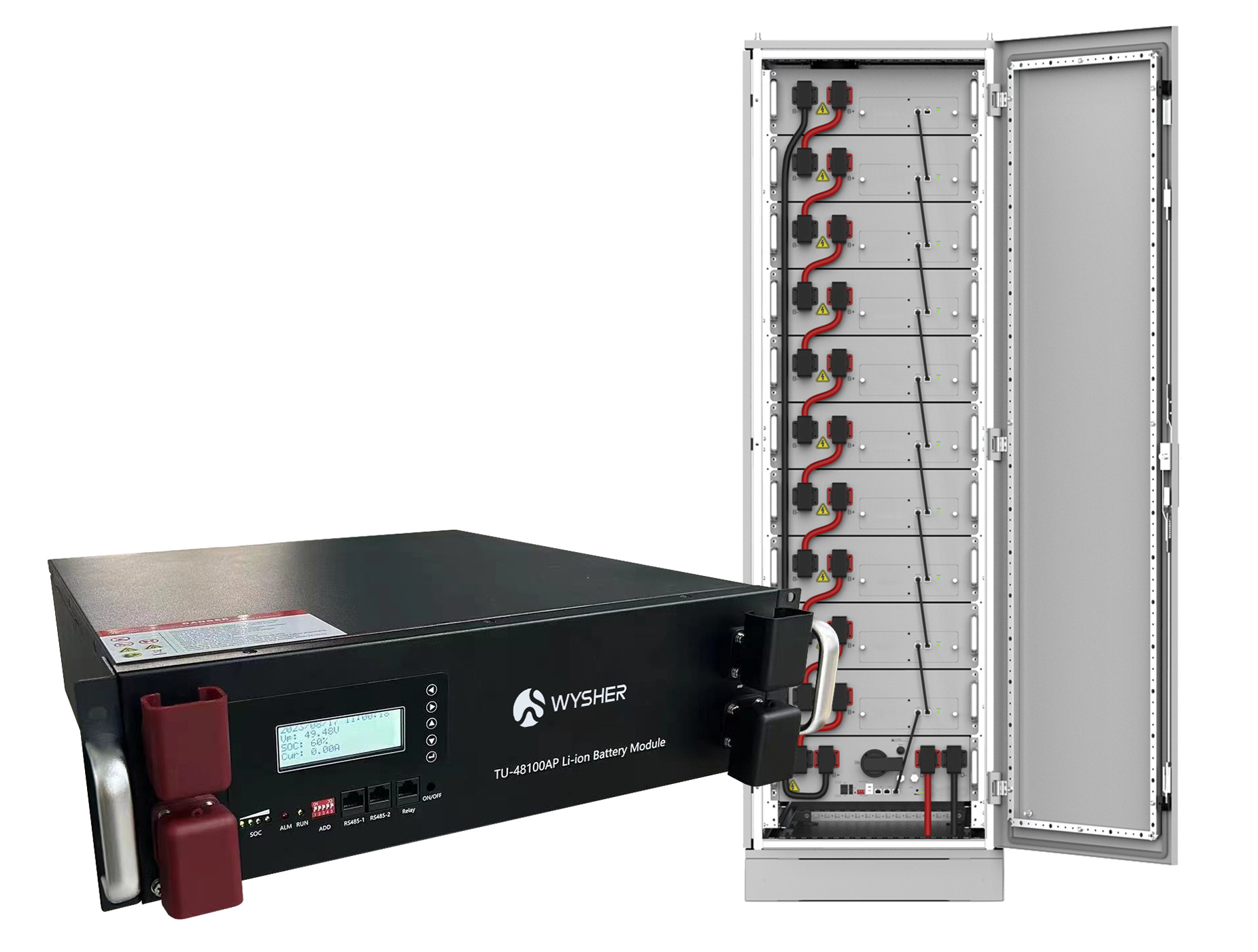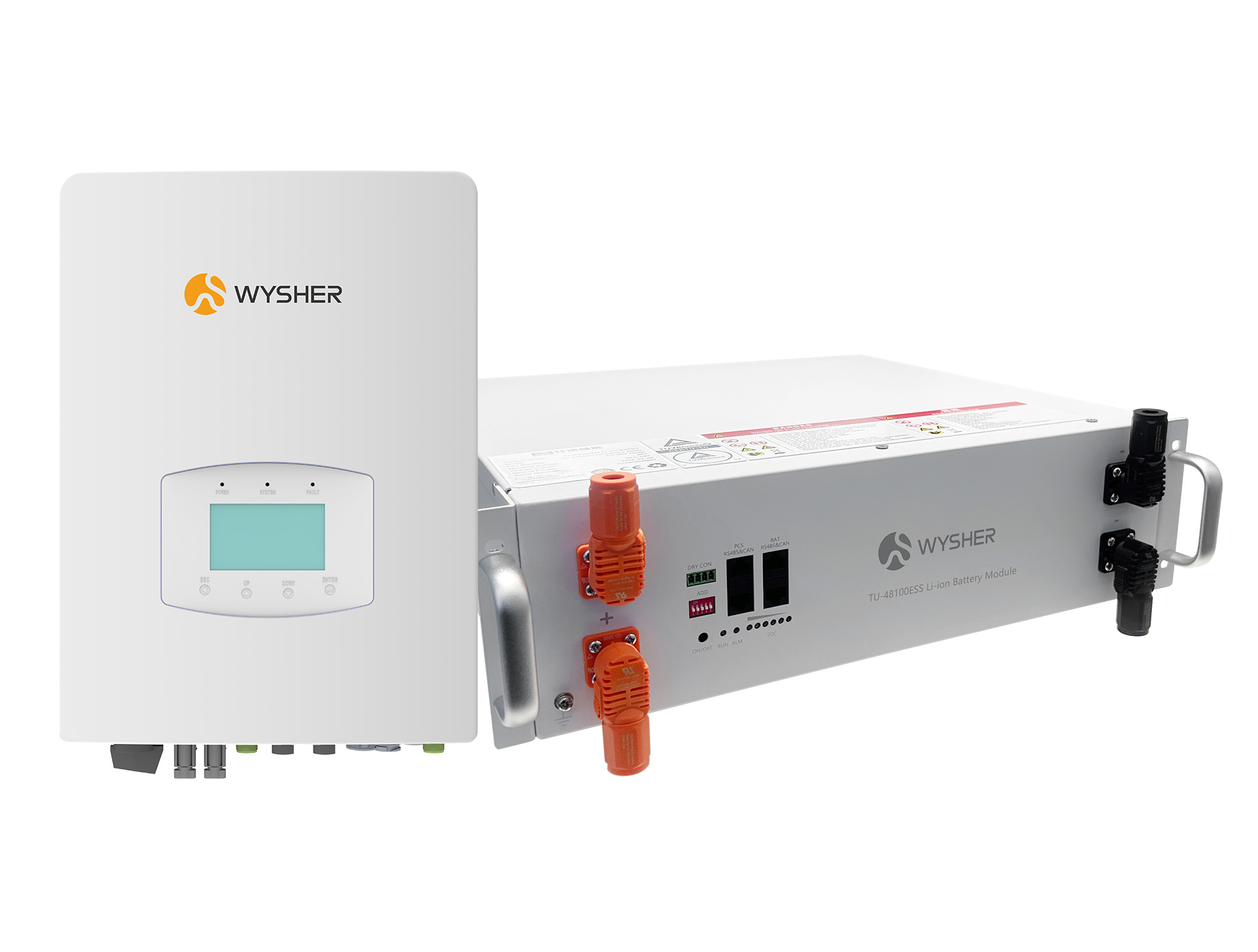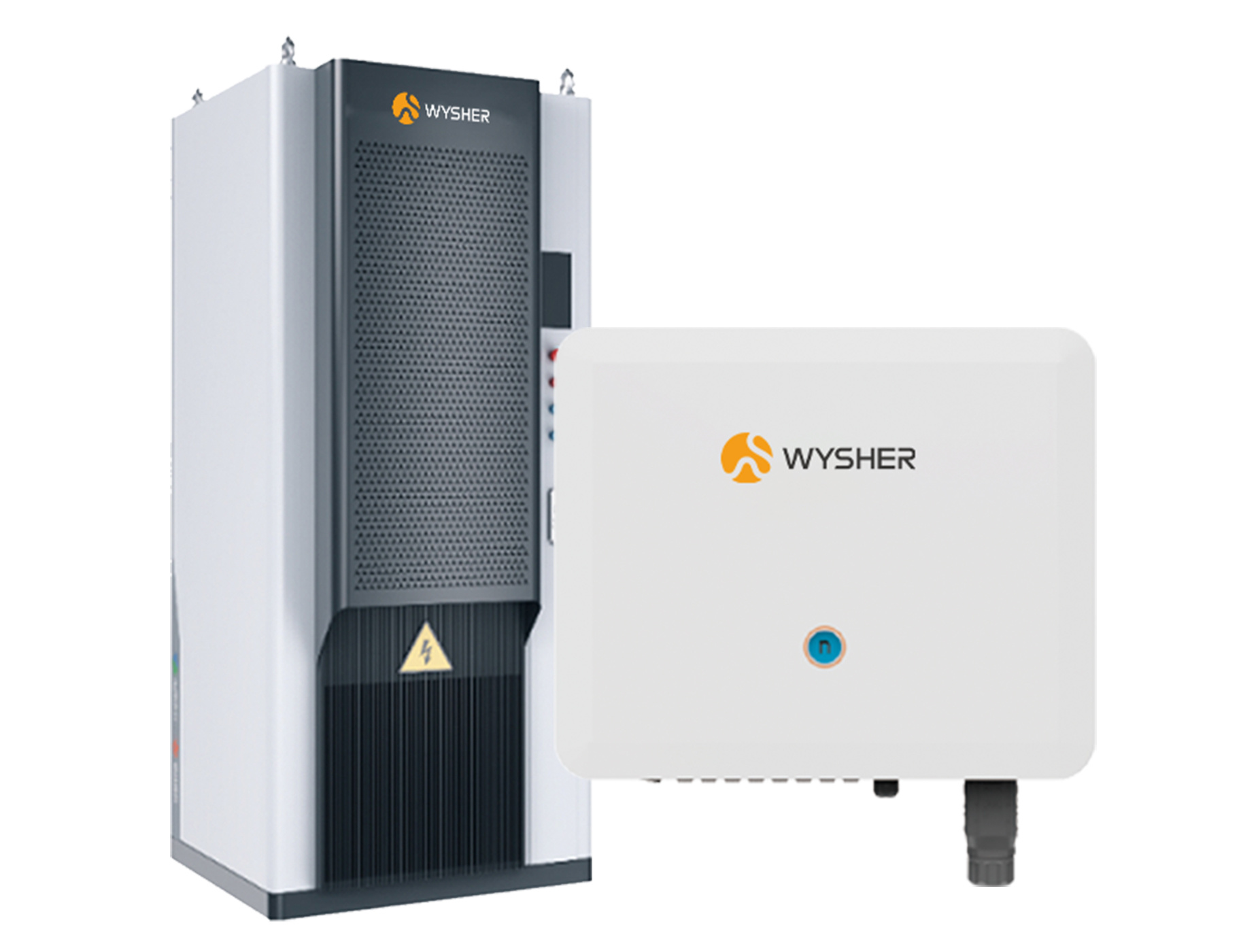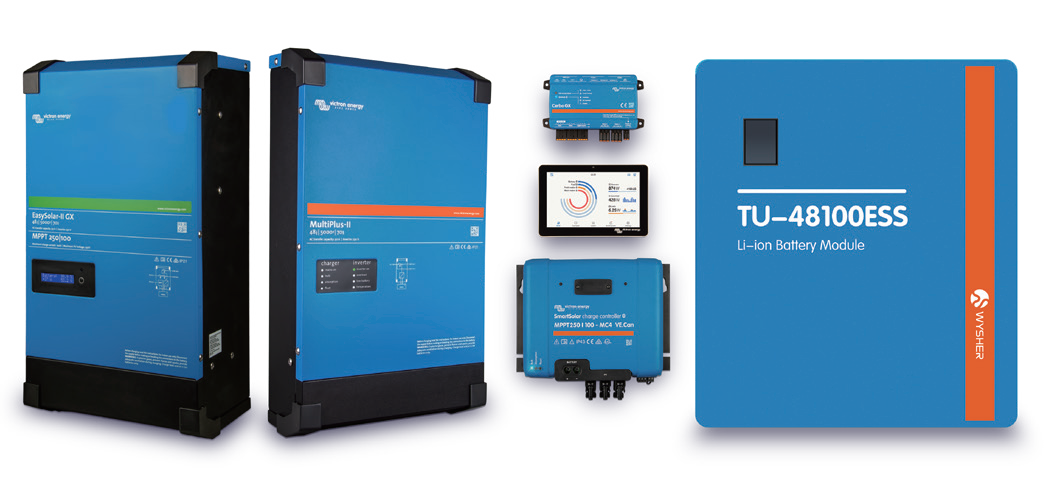NEWS
24
2023
-
10
What should we know about the different types of solar inverters?
On-grid solar inverters are the heart of any solar power system. They play a key role in converting the direct current generated by the solar panels into alternating current that can be fed back into the grid or consumed in the household.
Grid Solar Inverters
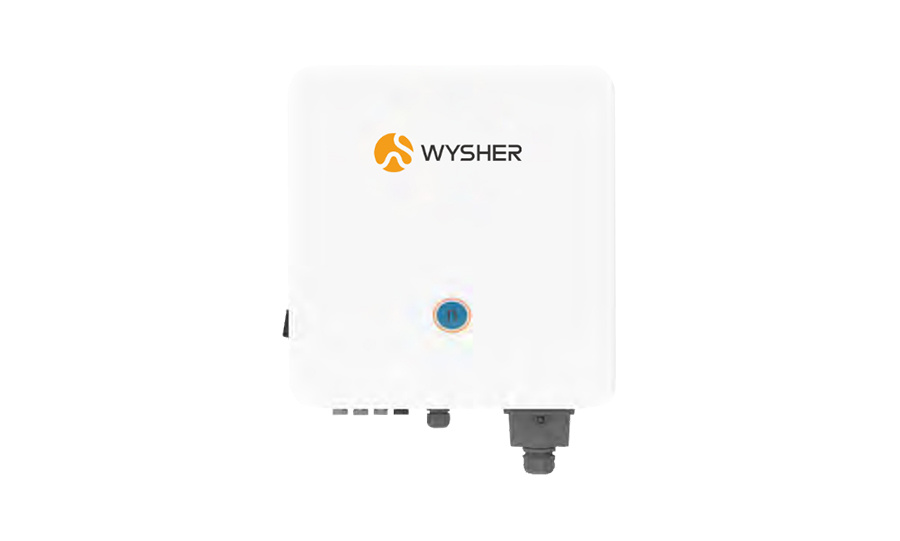
On-grid solar inverters are the heart of any solar power system. They play a key role in converting the direct current generated by the solar panels into alternating current that can be fed back into the grid or consumed in the household.
In the following lines, we will take a closer look at the characteristics and varieties of grid solar inverters.
Nature and characteristics
Grid solar inverters are technical devices that convert the direct current produced by the solar panels into alternating current with the appropriate parameters that can be fed back into the public electricity grid or used for household consumption.
These inverters are the main interface between the solar system and the electrical grid.
Main features of grid solar inverters:
● Current conversion: The main function of grid inverters is to convert the direct current from the solar panels into alternating current with the relevant parameters for the normal operation of the electrical grid.
● Monitoring and control: Many modern grid inverters have built-in monitoring and control systems that allow system owners to monitor power generation and control inverter performance remotely.
● Protection system: Grid inverters also include protection systems against overloads and other electrical irregularities that may occur in the grid.
Kinds
They are divided into the following:
● Central grid inverters: These inverters are suitable for large solar installations. They are usually larger and higher wattage, making them suitable for industrial and commercial applications. They are expected to serve a large number of solar panels and ensure stable energy production.
● String Grid Inverters: This type of inverter is more commonly used in residential and smaller commercial systems. They work as a connector between several solar panels that are connected in a "string" and connect them to the electrical grid.
What advantages and disadvantages do they have?
Advantages:
● Efficiency: On-grid solar inverters usually have high efficiency in converting energy from solar panels, which contributes to a better output of the solar system.
● Ease of installation: Installation of grid inverters is usually easier and faster than some other types of inverters.
Disadvantages:
● Grid Dependency: Grid inverters require a grid to function. When the power supply from the network stops, they also stop working.
● Limited energy storage: Grid inverters usually do not have a built-in system to store excess electricity, meaning that this energy is either currently used or fed back into the grid.
On-grid solar inverters play an important role in any solar power system, ensuring efficient energy conversion and management.
Their different types - central and string - provide opportunities for adaptation to different scales and applications. Despite some limitations, grid solar inverters are an essential element for using solar energy and bring significant benefits to society and the environment.
Hybrid solar inverters
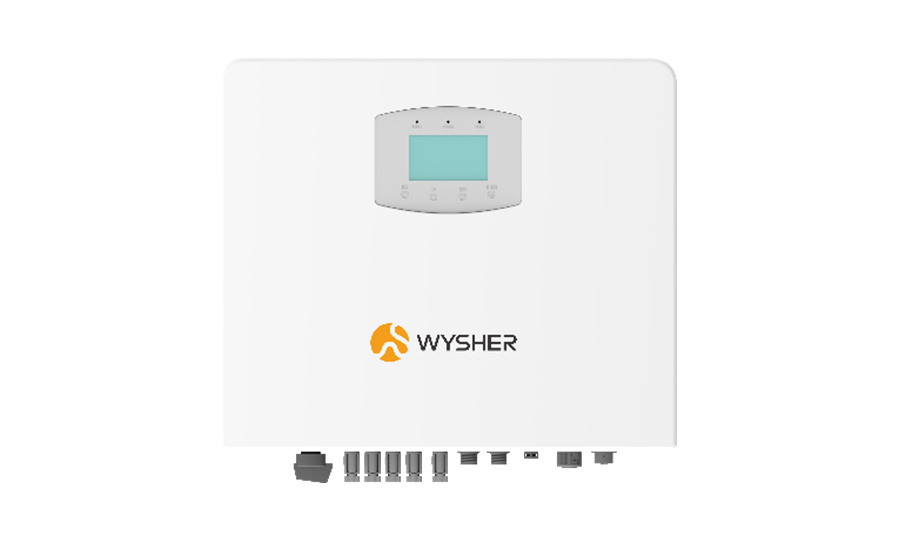
Hybrid solar inverters represent an innovative solution in the field of photovoltaic systems, combining the functions of a traditional inverter with the possibility of storing excess electricity.
These inverters are a key element in the possibilities of creating autonomous systems for the production and use of energy. Let's get acquainted in more detail with their essence, characteristics and types.
Nature and characteristics
Hybrid solar inverters are a technical solution that combines the functionality of a grid inverter (conversion of direct current from solar panels into alternating current for use in the electrical grid) with an energy storage system.
This means that the hybrid inverter not only converts the energy generated by the photovoltaic panels, but can also store it in batteries for later use.
Key Features of Hybrid Solar Inverters:
● Energy storage: This aspect is the main feature that distinguishes hybrid inverters from their grid counterparts. The built-in storage system allows the system to store excess electricity produced, which can later be used when the energy production from the solar panels is limited.
● Off-grid operation: Hybrid inverters can also function as back-up inverters when there is no power grid available. This makes them suitable for autonomous systems in remote areas or in the event of accidents.
● Intelligent control software: To optimize the production, storage and use of electricity, hybrid inverters often have intelligent algorithms and software that can predict and optimize consumption.
Kinds
They are divided into the following:
● AC hybrid inverters: This type of inverter works with the direct current from the solar panels and converts the energy into alternating current that can be used directly from the home's electrical grid. The remaining energy can be stored in batteries.
● DC hybrid inverters: This type of inverter allows the direct connection of solar panels and batteries to the inverter without the need for additional converters. This can lead to more efficient energy storage and absorption.
What advantages and disadvantages do they have?
Advantages:
● Efficient energy storage: The ability to store excess electricity allows optimal use of the energy produced, even when the sun's conditions are less than ideal.
● Autonomy and independence: Hybrid inverters provide the ability to work off-grid and create autonomous systems, which is useful for places with unstable power supply or in emergency situations.
Disadvantages:
● Higher cost: Hybrid solar inverters are usually more expensive compared to regular grid inverters.
● More complex installation and maintenance: Using the energy storage function often requires more complex installation and maintenance of the batteries.
Hybrid solar inverters represent a promising solution for efficient and sustainable use of solar energy.
Their storage capabilities and optimal energy management make them suitable for both homes and business buildings, especially in situations where a reliable and sustainable power supply is essential.
Despite the higher cost and more complex installation, hybrid solar inverters provide a wide range of options for optimizing the energy balance and combining profit with environmental responsibility.
Conclusion
This article looks at the main types of solar inverters - grid and hybrid - and their relevance to PV systems. By taking the time to research the features and benefits of each category, we can make more informed decisions when choosing the right inverter for the specific situation.
Key words:
Related news
Wysher, a leading provider of renewable energy solutions, has officially launched its Pakistan subsidiary, marking a strategic step in its global expansion. This move reinforces Wysher’s commitment to delivering cutting-edge solar and energy storage technologies to the Pakistani market, supported by its authorized partnership with Victron Energy.
Factors to Consider When Choosing a Telecom Battery
Telecom batteries are rechargeable batteries designed to provide backup power to telecommunications equipment, such as base stations, cell towers, and other communication infrastructure.
How to Choose the Right Residential Energy Storage System for Your Home
Energy storage is usually using stored battery energy to store excess electricity generated by solar panels or other renewable energy sources. Residential energy storage systems typically consist of a battery pack, an inverter, and a monitoring system that allows homeowners to track their energy usage and battery performance.
How to choose a solar inverter?
A solar inverter is a device that converts direct current (DC) produced by solar panels into alternating current (AC) that is suitable for use by electrical appliances in the home or business.
What should we know about the different types of solar inverters?
On-grid solar inverters are the heart of any solar power system. They play a key role in converting the direct current generated by the solar panels into alternating current that can be fed back into the grid or consumed in the household.
Date: SEPTEMBER 11-14.2023 Location: Sands Expo & Convention Center,Las Vegas, Nevada, United States Booth: 12014



